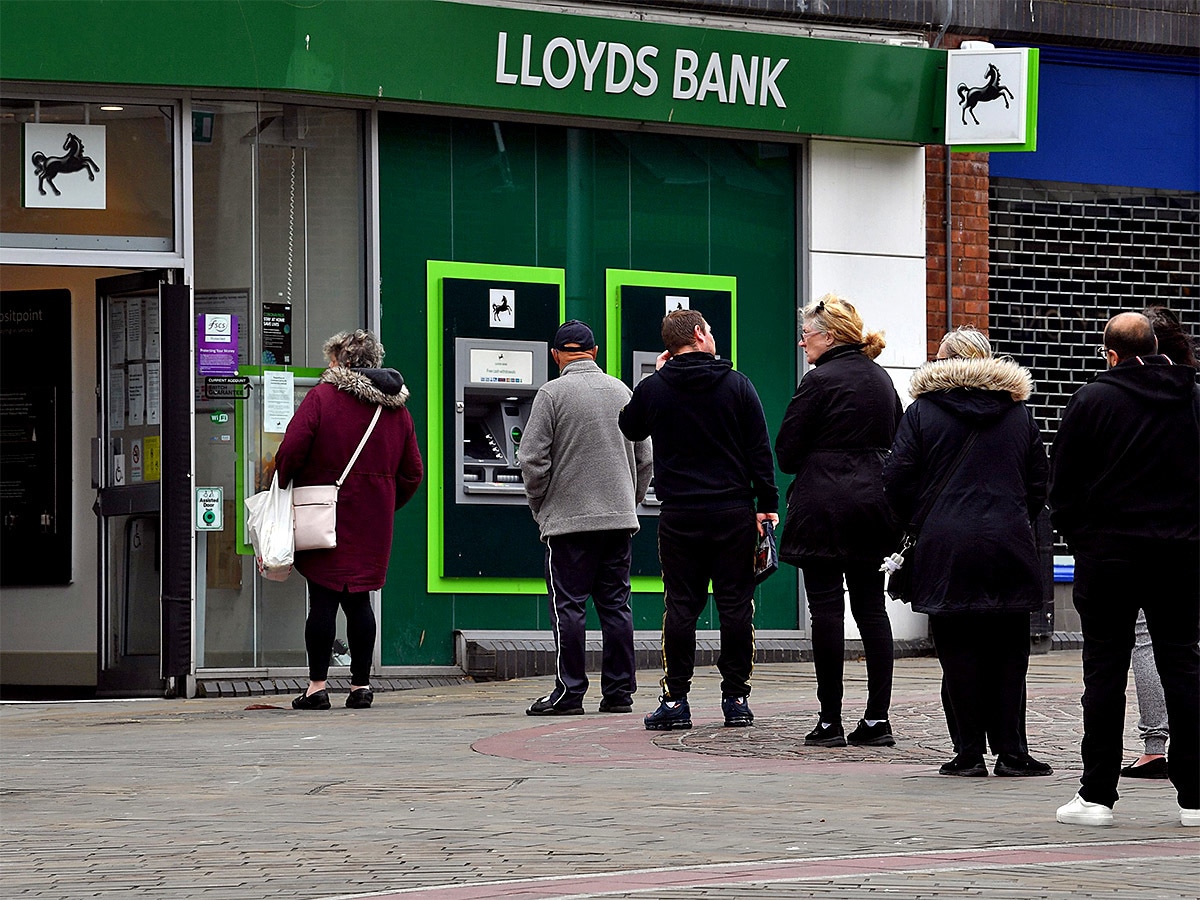Lloyds’ [LLOY] share price has rocketed this week following Pfizer’s [PFE] COVID-19 vaccine breakthrough. The stock has rallied 17.43% between 6 November and 10 November’s close after what has been a gruelling six and a half months for shareholders.
It’s no secret that Lloyds’ share price has been one of the British banks worst affected by the coronavirus selloff. In March, the stock’s value halved as the bank’s exposure to the UK economy gave investors the jitters.
Since then, the prolonged slump has seemed endless. Lloyds’ share price was cheap, but murmurs had been growing over when it would finally rally. Some even speculated that the stock was a value trap, with little chance of recouping losses.
Now, with the promise of an effective vaccine, the question is just how high Lloyds’ share price will go.
How Pfizer’s vaccine lifted Lloyds’ share price
Lloyds' share price has pin-balled around the 26p-30p range for much of the past month. On 23 October, the stock hit a high of 29.7p, before slumping back to the 27p level a couple of days later. On 3 November, it hit 29.4p, before again slumping to around 27p two days later. The last time the stock had traded above this range was 12 August, when Lloyds’ share price touched 30.07p during intraday trading.
Finally, the 30p level was broken on Monday. The catalyst was Pfizer and BioNTech’s [BNTX] announcement of a coronavirus vaccine with a 90% success rate in initial Stage Three trials. This news saw the stock close circa 10% higher on Monday.
Lloyds’ share price is proving resilient
While the stock had been range bound until last week, it was holding up better than might be expected. In September, Lloyds' share price hit 23.64p as a surge in coronavirus cases brought an end to the optimism that surrounded the summer months. Yet, since the UK went into a second lockdown, Lloyds’ stock has proven surprisingly resilient.
For some traders, this could mean that the damage of a second lockdown is already priced into the stock. Adding to the optimism are Lloyds’ Q3 results, which turned around the previous quarter’s losses.
In the bank's latest set of results, pre-tax profits came in at £1bn, a decidedly better result than the £676m loss it saw last quarter. Lloyds was also up on the £50m profit seen in the same period last year, when PPI claims all but wiped out profits.
£1billion
Lloyds' Q3 pre-tax profits
Boosting this figure was the UK's booming property market, with the bank's open mortgage book up £3.5bn since June 2020, with a strong pipeline of mortgage applications. Brisk mortgage sales should continue into the fourth quarter as buyers rush to beat the stamp duty holiday in March.
Cash set aside for unexpected loan defaults came in at £301m, 85% less than the £2.4bn saved in the second quarter, and well below analyst expectations. The bank is also better capitalised than it was a last quarter with a CTE1 ratio of 15.2%, up from the 14.6% seen last year.
Headwinds for Lloyds’ share price
Despite the bank bouncing back into profit in the third quarter, the outlook is still uncertain for the UK economy, and some see Lloyds’ share price as a value trap. A rollout of any vaccine will take time, the stamp duty holiday is due to come to an end next year, and unemployment is still expected to rise.
One problem for Lloyds is interest rates. Even before the coronavirus these were at historic lows, putting pressure on the bank's profit margins. According to the Financial Times, every 25 basis points slashed reduces £150m from Lloyds’ annual net interest income.
Where next for Lloyds?
Investors will need to decide just how far Lloyds’ share price can break out. After the initial euphoria, there could be some pullback as uncertainty remains over the economy.
That said, with Health Secretary Matt Hancock suggesting the first part of 2021 could see a mass rollout of the Pfizer/BioNTech vaccine, things could start to get back to normal in the spring. Should this happen, the UK economy could rally, taking Lloyds up with it.
Among the analysts tracking the stock on the Financial Times, Lloyds’ has a 36p price target. Hitting this would represent a 12% upside on the current price (through 10 November’s close).
| Market cap | £23.638bn |
| PE ratio (TTM) | 33.38 |
| EPS (TTM) | 1.00 |
| Quarterly revenue growth (YoY) | -18.80% |
Lloyds' share price vitals, Yahoo Finance, 11 November 2020
Disclaimer Past performance is not a reliable indicator of future results.
CMC Markets is an execution-only service provider. The material (whether or not it states any opinions) is for general information purposes only, and does not take into account your personal circumstances or objectives. Nothing in this material is (or should be considered to be) financial, investment or other advice on which reliance should be placed. No opinion given in the material constitutes a recommendation by CMC Markets or the author that any particular investment, security, transaction or investment strategy is suitable for any specific person.
The material has not been prepared in accordance with legal requirements designed to promote the independence of investment research. Although we are not specifically prevented from dealing before providing this material, we do not seek to take advantage of the material prior to its dissemination.
CMC Markets does not endorse or offer opinion on the trading strategies used by the author. Their trading strategies do not guarantee any return and CMC Markets shall not be held responsible for any loss that you may incur, either directly or indirectly, arising from any investment based on any information contained herein.
*Tax treatment depends on individual circumstances and can change or may differ in a jurisdiction other than the UK.
Continue reading for FREE
- Includes free newsletter updates, unsubscribe anytime. Privacy policy





